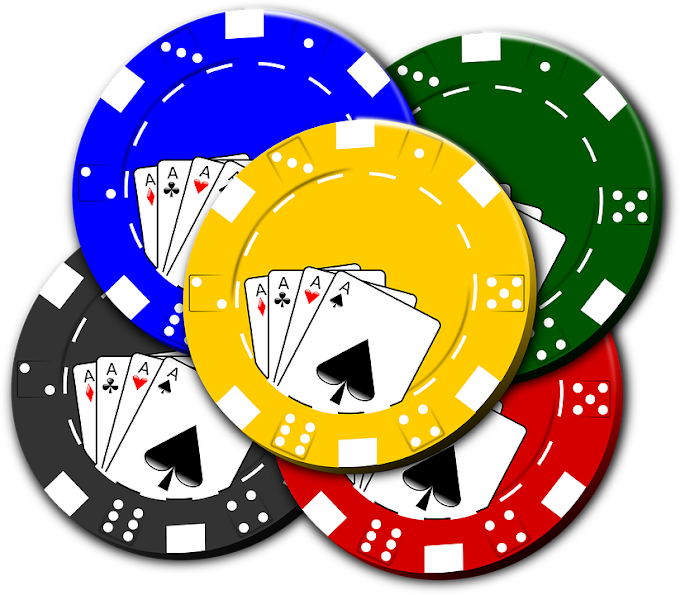Successful Sports Bettors Exploit Every Edge
There's an old saying that likely was coined by someone who had a gambling problem or, at best, probably lived by it far too often. "The less you bet, the more you lose when you win."
This motto is probably used more often by blackjack players that have a $400 bankroll and are betting $100 per hand than by seasoned sports bettors who know the value of money management.
By and large, this statement, and variations thereof, get thrown around the casino by reckless gamblers looking for a way to rationalize their habits. Even so, if you are someone who takes sports betting somewhat seriously, there's something to be said for exploring the concept in a little more detail.
This isn't meant to condone gambling for gambling's sake, which is the downfall for many otherwise would-be successful sports bettors. But it's about recognizing when you've got the best of it and taking full advantage when those rare opportunities arise.
Sports betting is a fundamentally difficult game to beat, despite some perceptions that suggest otherwise. When you factor in the house juice and the overall consistency and accuracy of the odds, it's no wonder only a select few can make a living with sports wagering.
Those who are consistent winners tend to have a few consistent traits that include discipline, smart money management and emotional detachment from results. They also know how to maximize their potential to win a bet.
For instance, it makes no sense to try and pick a winner against the spread for every single NFL game during football season. The NFL Odds are notoriously the toughest to beat, and even the most seasoned sports bettor is fortunate if he can break the 55-percent win mark for the season. This doesn't stop hordes of sports bettors from firing away in a fruitless attempt to defy the odds.
You'd be much better off identifying a few games in which you are fairly confident you can identify a winner. If a spread catches your attention, do some research to make sure there aren't any injuries or other details you might not have been aware of. If everything checks out, your best course of action is to focus on your top one or two picks. If you have $200 to play with, you'd be advised to play it all on your top pick as opposed to playing $20 each on 10 games, if those were your only options.
In other words, the biggest edge you can exploit is your knowledge. How often have you categorized a game as a 'sure thing,' only to regret not betting it? Or worse, not betting enough? If you are an experienced sports bettor who has seen positive long-term results, one of the biggest mistakes you can make is failing to capitalize on your instinct and maximizing your profit.
Perhaps there is one team or one specific college conference with which you are very familiar. Or, maybe you've had success handicapping lower-profile sports such as the WNBA, or maybe you are a close follower of boxing and mixed-martial arts. Regardless of where your expertise lies, it's a good idea to keep in mind that you should play to your strengths.
There are some decent bets out there, some very good ones, and some borderline "can't miss" wagers that appear from time to time. It's in these rare instances when that old motto applies: not betting enough is the equivalent of taking a loss.
There's an old saying that likely was coined by someone who had a gambling problem or, at best, probably lived by it far too often. "The less you bet, the more you lose when you win."
This motto is probably used more often by blackjack players that have a $400 bankroll and are betting $100 per hand than by seasoned sports bettors who know the value of money management.
By and large, this statement, and variations thereof, get thrown around the casino by reckless gamblers looking for a way to rationalize their habits. Even so, if you are someone who takes sports betting somewhat seriously, there's something to be said for exploring the concept in a little more detail.
This isn't meant to condone gambling for gambling's sake, which is the downfall for many otherwise would-be successful sports bettors. But it's about recognizing when you've got the best of it and taking full advantage when those rare opportunities arise.
Sports betting is a fundamentally difficult game to beat, despite some perceptions that suggest otherwise. When you factor in the house juice and the overall consistency and accuracy of the odds, it's no wonder only a select few can make a living with sports wagering.
Those who are consistent winners tend to have a few consistent traits that include discipline, smart money management and emotional detachment from results. They also know how to maximize their potential to win a bet.
For instance, it makes no sense to try and pick a winner against the spread for every single NFL game during football season. The NFL Odds are notoriously the toughest to beat, and even the most seasoned sports bettor is fortunate if he can break the 55-percent win mark for the season. This doesn't stop hordes of sports bettors from firing away in a fruitless attempt to defy the odds.
You'd be much better off identifying a few games in which you are fairly confident you can identify a winner. If a spread catches your attention, do some research to make sure there aren't any injuries or other details you might not have been aware of. If everything checks out, your best course of action is to focus on your top one or two picks. If you have $200 to play with, you'd be advised to play it all on your top pick as opposed to playing $20 each on 10 games, if those were your only options.
In other words, the biggest edge you can exploit is your knowledge. How often have you categorized a game as a 'sure thing,' only to regret not betting it? Or worse, not betting enough? If you are an experienced sports bettor who has seen positive long-term results, one of the biggest mistakes you can make is failing to capitalize on your instinct and maximizing your profit.
Perhaps there is one team or one specific college conference with which you are very familiar. Or, maybe you've had success handicapping lower-profile sports such as the WNBA, or maybe you are a close follower of boxing and mixed-martial arts. Regardless of where your expertise lies, it's a good idea to keep in mind that you should play to your strengths.
There are some decent bets out there, some very good ones, and some borderline "can't miss" wagers that appear from time to time. It's in these rare instances when that old motto applies: not betting enough is the equivalent of taking a loss.




0 Comments